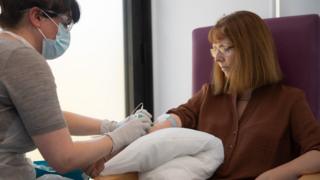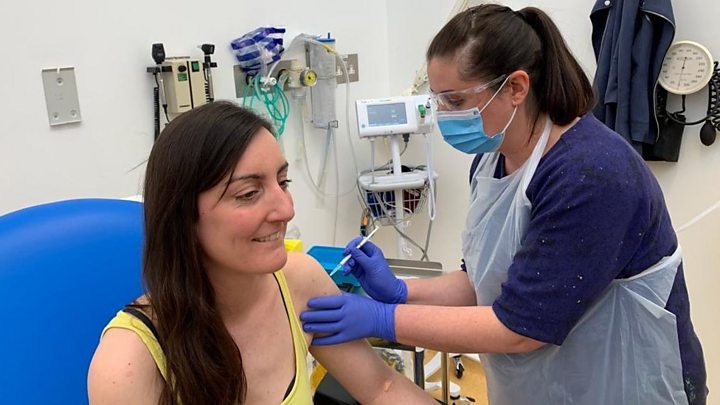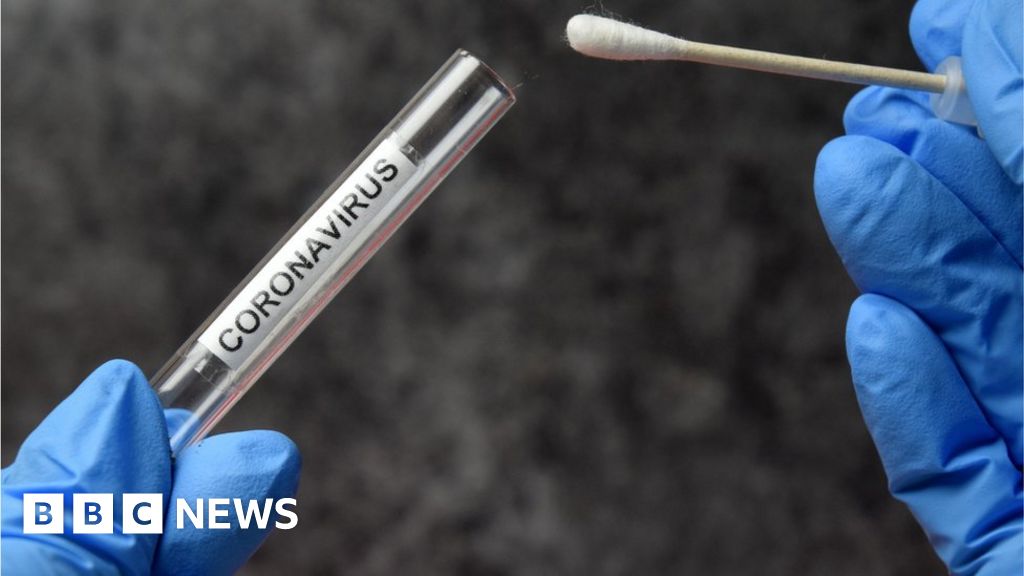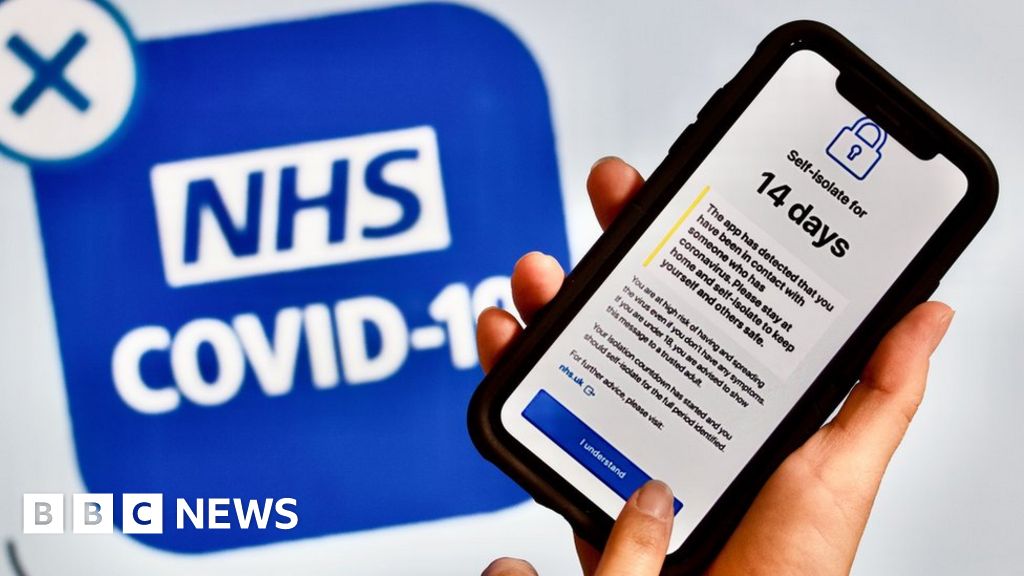 Image copyright
University of Oxford/PA Media
Image caption
There are now 23 coronavirus vaccines in clinical trials around the world - including at Oxford University
Image copyright
University of Oxford/PA Media
Image caption
There are now 23 coronavirus vaccines in clinical trials around the world - including at Oxford University
The UK government has signed deals for 90 million doses of promising coronavirus vaccines that are being developed.
The vaccines are being researched by an alliance between the pharmaceutical companies BioNtech and Pfizer as well as the firm Valneva.
The new deal is on top of 100 million doses of the Oxford University vaccine being developed by Astra Zeneca.
However, it is still uncertain which of the experimental vaccines may work.
A vaccine is widely seen as the best chance of getting our lives back to normal.
Research is taking place at an unprecedented scale - the world became aware of coronavirus at the beginning of the year, but already more than 20 vaccines are in clinical trials.
Some can provoke an immune response, but none have yet be proven to protect against infection.
The UK government has now secured access to vaccines that use three completely different approaches:
100m doses of the Oxford vaccine made from a genetically engineered virus 30 million doses of the BioNtech/Pfizer vaccine, which injects part of the coronavirus' genetic code 60 million doses of the Valneva, which uses an inactive version of the coronavirusKate Bingham, the chair of the government's Vaccine Taskforce, said: "The fact that we have so many promising candidates already shows the unprecedented pace at which we are moving.
"But I urge against being complacent or over optimistic.
"The fact remains we may never get a vaccine and if we do get one, we have to be prepared that it may not be a vaccine which prevents getting the virus, but rather one that reduces symptoms."

Media playback is unsupported on your device
The announcement also includes an agreement with AstraZeneca to buy treatments made from neutralizing antibodies, which can disable the virus.
These could be given to people who cannot be vaccinated because they have a weakened immune system or are having treatment for cancer.
Meanwhile, the government is hoping to get half a million people to sign up to trials of vaccines in the UK through the NHS Covid-19 vaccine research registry website.
Prof Chris Whitty, Chief Medical Officer, said: "Now that there are several promising vaccines on the horizon, we need to call again on the generosity of the public to help find out which potential vaccines are the most effective."

 5 years ago
760
5 years ago
760 

